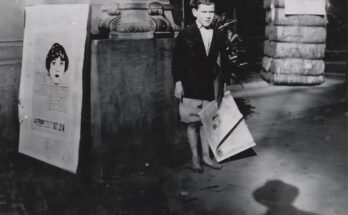Stefan Niedziałkowski was a Polish man born in the early decades of the 20th century, a time when Poland was emerging from the shadows of partition and reasserting its independence. He lived through turbulent times, witnessing both the rebirth of the Polish state and the economic and political challenges that followed. A clerk by profession, Stefan likely lived a structured and disciplined life, working in an office or administration, part of the growing civil or commercial machinery of interwar Poland. His life, though ordinary in many ways, reflected the aspirations of many Poles rebuilding their nation after more than a century of foreign rule.
When Nazi Germany invaded Poland on September 1, 1939, Stefan’s life—and the lives of millions of Poles—was abruptly and violently transformed. The German occupation brought with it not only military conquest but also an ideological campaign to eliminate Poland’s intelligentsia, political leaders, and anyone deemed a threat to Nazi control. Clerks, teachers, priests, and civil servants were often among the first to be targeted. Stefan, with his professional background, may have been arrested as part of one of the Nazi campaigns to decapitate Polish society, such as the Intelligenzaktion.
On 20 August 1941, Stefan Niedziałkowski was deported to Auschwitz, one of the most notorious Nazi concentration camps, located in occupied southern Poland. He was registered as prisoner number 20096. By this time, Auschwitz had become a central site of terror, not only for Jews but also for thousands of Poles, Soviet POWs, Roma, and other groups. In 1941, the camp expanded dramatically, and the SS began a systematic campaign of brutality, forced labor, and execution. For political prisoners and intellectuals like Stefan, the camp offered little hope of survival.
Life in Auschwitz was dehumanizing in every sense. Prisoners were forced into hard labor, often under lethal conditions, with inadequate food, constant abuse, and a complete lack of medical care. Those who resisted, showed weakness, or were simply deemed unnecessary were beaten, starved, or executed. For someone like Stefan—accustomed to a life behind a desk—the physical and psychological torture of the camp must have been a harrowing transformation. But even under such grim circumstances, prisoners tried to preserve their dignity, maintain solidarity, and resist in subtle ways.
On 14 June 1942, less than a year after his arrival, Stefan Niedziałkowski was executed—shot in Auschwitz by the Nazi authorities. His death may have been the result of a punishment, a political execution, or part of one of the many reprisals carried out against Polish prisoners. At that time, executions were carried out routinely in the camp, particularly against Poles seen as dangerous or defiant. The fact that his death was by shooting rather than gas chamber suggests he may have been singled out for execution, perhaps for resistance or for his role in the community within the camp.
His execution falls on a grim anniversary: 14 June was the date in 1940 when the first transport of Polish political prisoners arrived at Auschwitz. Whether or not this date was chosen intentionally in his case, it underscores the systematic violence directed at Poles in the camp’s early years. Stefan’s death, like that of thousands of Polish patriots, intellectuals, and professionals, was part of a broader campaign by the Nazis to eliminate the Polish identity and leadership class.
Stefan Niedziałkowski’s name, prisoner number 20096, and date of death are preserved in historical records, serving as a testament to his existence and to the brutality he faced. While the Nazis sought to reduce individuals to numbers and erase their humanity, remembrance efforts today strive to restore that humanity by telling their stories. Each name, each profession, each fate—like Stefan’s—is a vital thread in the larger tapestry of history.
His story reminds us of the vast and varied suffering inflicted by the Nazi regime—not only on Jews, but also on Poles, political dissidents, and countless others. Remembering Stefan is an act of resistance against historical amnesia. It is a call to honor the dignity of those who stood defenseless against tyranny, and to ensure that their sacrifices are never forgotten.


